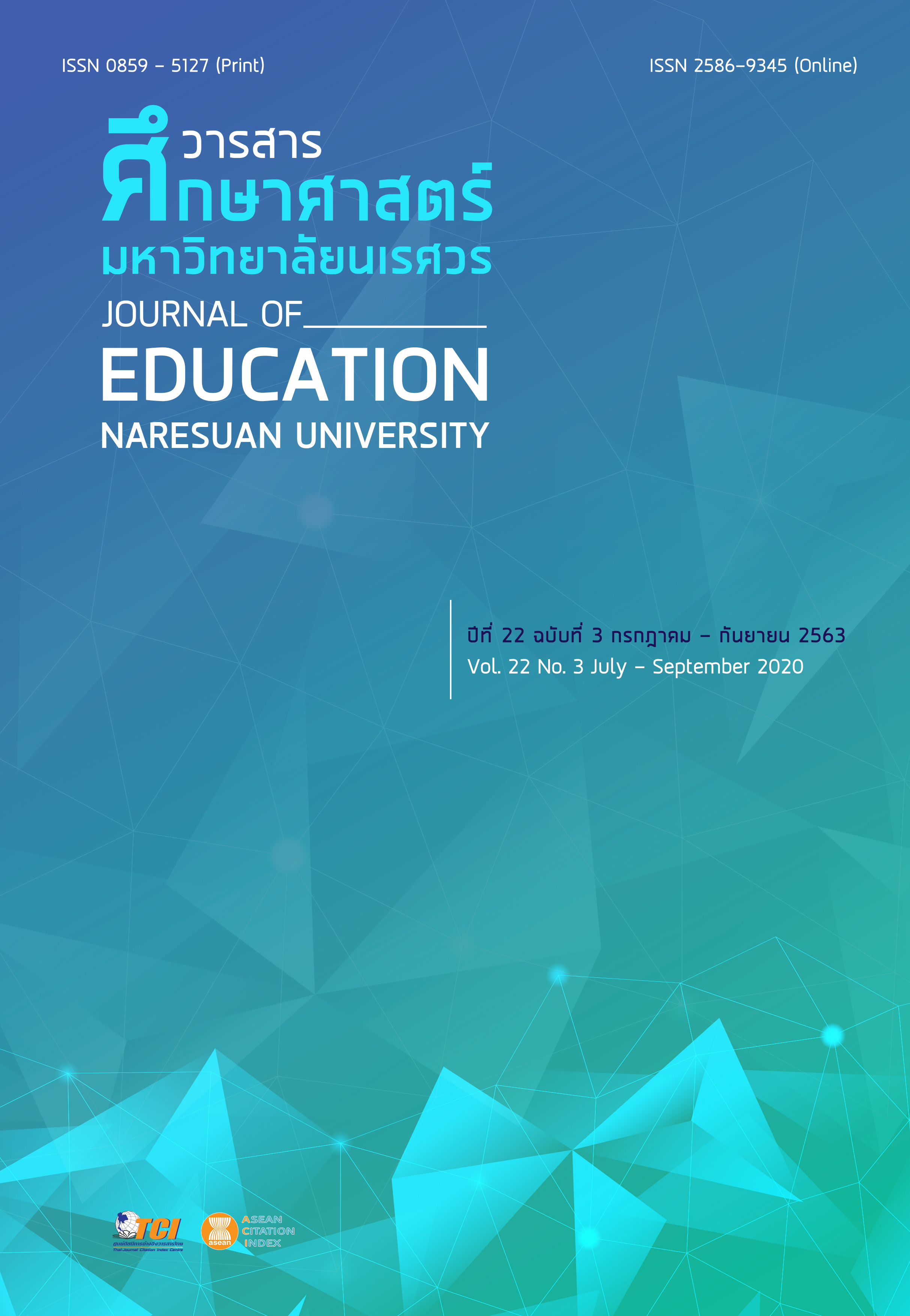LEADERSHIP MODEL AND ADMINISTRATIVE EFFECTIVENESS OF ROYAL AWARDED SECONDARY SCHOOLS IN THE UPPER NORTHENS REGION ตัวแบบภาวะผู้นำกับประสิทธิผลของโรงเรียนที่ได้รับรางวัลพระราชทานระดับมัธยมศึกษาในเขตภาคเหนือตอนบน
Main Article Content
Abstract
The objectives of this research study were to develop the leadership model by using statistical factor analysis and to propose administrative effectiveness of Royal Awarded secondary school in the upper Northern region. The research was mixed quantitative and qualitative methodologies. The exploratory factor analysis technique was used to obtain the required leadership components of school administrators of Royal Awarded secondary school by a questionnaire survey of a sample of teachers in the Royal Awarded secondary school in the upper Northern region. The qualitative research technique was conducted by in-depth interviews of selected school administrators, teachers, un-structured field observations and group discussions. The content analysis was conducted from the collected data. The confirmatory factor analysis and Path analysis were employed by data from the questionnaire survey of the sample of Royal Awarded secondary schools throughout the country. The results of the research showed that leadership model of school administrators consisted of five key components: ideology and a role model, leader of changes, teamwork building inspirational leader and vision. The administrative effectiveness of Royal Awarded secondary school required four aspects: school management, learning management, academic management, and personal management.
Article Details
The owner of the article does not copy or violate any of its copyright. If any copyright infringement occurs or prosecution, in any case, the Editorial Board is not involved in all the rights to the owner of the article to be performed.
References
Ivancevich, J., Konopaske, R., & Matteson, M. T. (2007). Organizational behavior and management (8th ed.). New York: McGraw-Hill.
Kotter, J. P. (1996). Leading change. Boston: Harvard Business School Press.
Kouzes, J. M., & Posner, B. Z. (2007). The leadership challenge (4th ed.). San Francisco, CA: Jossey-Bass.
Krejcie, R. V., & Morgan, D. W. (1970). Determining sample size for research activities. Education and Psychological measurement, 607 – 610. Retrieved from https://www.chaffey.edu/research/IR_PDF
Mortimore, P., Sammons, P., Stoll, L., Lewis, D., & Russell, E. (1988). School matters. Berkeley: The University of California.
Office of the Basic Education Commission. (2010). A guide to school assessment for receiving royal awards at primary and secondary levels. Bangkok: The Agricultural Cooperative Federation of Thailand. [in Thai]
Office of the Basic Education Commission. (2012). An Analysis of the Influence Factors of the Success of the Royal Awarded Schools of Basic Education. Bangkok: Prikwarn Graphic. [in Thai]
Office of the Education Council. (2009). Research synthesis report on Thai education quality: Meta-analysis. Bangkok: Office of the Education Council. [in Thai]
Scheerens, J., & Creemers, B. P. M. (1989). Conceptualizing school effectiveness. International journal of educational research, 13(7), 691-706. https://doi.org/10.1016/0883-0355(89)90022-0.
Thongphaeng, T. (2006). Factors influencing the effectiveness of Burapha University (Doctoral dissertation). Bangkok: Srinakharinwirot University. [in Thai]


